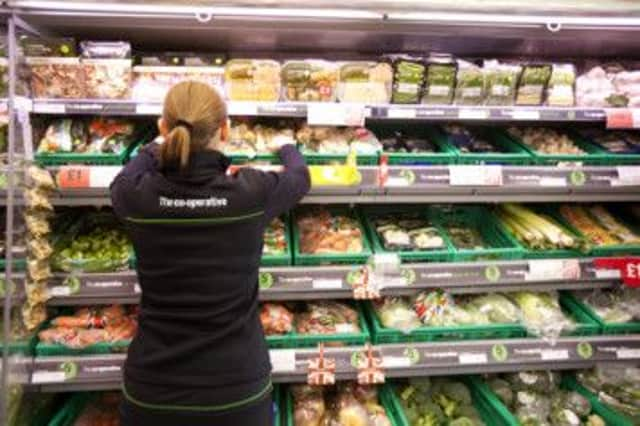Co-op looks to sell farms ahead of £2bn loss


It is part of a revamp of the group which is expected to post record annual losses of £2 billion next month and has been rocked by a number of scandals.
These include the discovery of a £1.5bn hole in its banking arm’s balance sheet and a drugs scandal involving former chairman, Methodist minister Paul Flowers.
Advertisement
Hide AdAdvertisement
Hide AdThe Co-op runs 15 mostly arable farms covering 50,000 acres in total, including three in Scotland at Blairgowrie in Perthshire, Carnoustie in Angus, and Monymusk in Aberdeenshire.
“[The group] has started a process that is expected to lead to a sale of the business,” the company said in a statement.
“In addition, it is exploring options for the future of the pharmacy business; this could include the sale in whole or part of the business.”
The 750 pharmacies, which employ 6,500 staff, generated revenues of £764 million in 2012. The Co-op’s farms produce cereal for bakers, supplying only 2 to 3 per cent of the food in its 2,800 food stores.
The pharmacies are seen as under financial pressure as the National Health Service tries to save money on prescriptions, and are not thought to be well integrated with other Co-op activities.
If both businesses are sold, it would leave the mutual with 30 per cent of the Co-op Bank that was bailed out by bondholders in a dramatic rescue, its food business, 800 funeral care outlets and its general insurance and legal services divisions.
In Scotland the Co-op has 400 food stores, 120 funeral homes and 66 pharmacies. Last month the Co-op scrapped a plan to sell its general insurance business, saying it did not need to raise as much capital as originally thought to support the partially spun-off Co-op Bank.
The bank’s rescue by bondholders was one of the biggest financial scandals of the past year, is subject to a number of inquiries, and raised questions about how Flowers was appointed as chairman despite having no banking qualifications.
Advertisement
Hide AdAdvertisement
Hide AdOne source said yesterday that the announcement about the pharmacies being potentially for sale was designed to “possibly shake out some expressions of interest” in the business.
A spokesman for the mutual declined to comment on reports that the Co-op will unveil losses of £2bn on 26 March.
The Co-op’s chief executive Euan Sutherland is expected to blame the loss on a poor performance for the Co-op Bank in the year before its spin-off.
At the results, the mutual is also expected to take an exceptional writedown on the value of the Somerfield grocery business it took over in 2009.
For the first half of 2013, Co-op Group made a pre-tax loss of £559m, following a loss in the previous year of £648m.